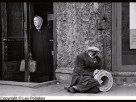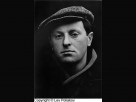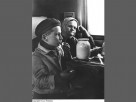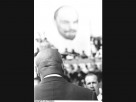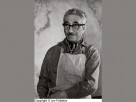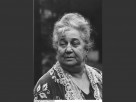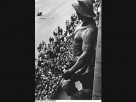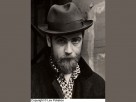Lev Poliakov
RACC Exhibition Series: From the Annals of our Past
RUSSIA - A PORTRAIT
The Harriman Institute at Columbia University
420 W.118th Street @ Amsterdam Ave
(International Affairs Building) 12th Floor
On view: TBD
Lev Poliakov's photography exhibition will showcase 22 black and white images from a book RUSSIA - A PORTRAIT published by Farrar Straus Giroux, New York in 1991. The photographs were taken primarily in Leningrad in the 1960's - early 1970's. The introduction to the Lev Poliakov's book was written by Joseph Brodsky.
Lev Poliakov was a part of the circle of Leningrad poets, writers and musicians awakened by the short period of thaw. By his own words: "Given the circumstances of our amazing Soviet reality … the atmosphere was quite interesting and intellectual thought raged, but it still was censored. I discovered for myself the language through which I can say anything and I do not have to use words. Since that I entirely devoted myself to this work."
Lev Poliakov's lyrical, intense with emotions photography, often compared to Henri Cartier-Bresson and Eugene Smith, was a product of Leningrad non-conformist art, inspired by artistic circles such as ones of Alexander Ariefiev and Anna Akhmatova. Being in total social and political vacuum, these artists and poets shared an irresistible feeling of inner creative freedom and fresh perception of the surrounding life. Ironically, these outsiders left the most powerful, precious and truthful artistic documents of the state, mood and innate beauty, despite all odds, of their time, city and culture. Lev Poliakov's images of ordinary people, just contemporaries, taken on the streets, in the train, on the market often in a dreadful situation could be described as "only outcry of life" that in Ariefiev's words art of that time could only to be. The presence of the Soviet power felt on the periphery of consciousness as the familiar signs such as a fluttering in the space faded image of iconic Lenin's face on the banner, or portraits of the Communist party leaders shown half-cut on the pedestrian level as unnoticed signs of everyday reality. These images coexisting with the portraits of mutual friends and oneminded personalities such as a signature portrait of Anna Akhmatova that was printed in one of her first books that came after long absence, the portrait of Joseph Brodsky just after his return from exile, a poet Sergey Wolf, and a painter Natan Altman who after returning from Paris to the SU in the 1930's did not produce a single painting, making living as stage designer.
Lev Poliakov was born in 1934 in St. Petersburg, Russia. He studied at the Lesgaf Medical Institute for Physical Education. In the 60's as a professional diver, he participated in the filming of a cult movie Amphibian Man. Lev Poliakov worked as a photographer in Lenizdat.
In January 1973 Lev Poliakov immigrated to the USA. In 1974, his first exhibition took place at the gallery on Park Avenue, New York. Lev Poliakov worked with Jacques Cousteau and was a part of the Middletown project with Peter Davis at PBS (Channel 13). His photographs had been published in Time Magazine, Vogue, and The New York Times.
Currently Lev Poliakov lives in New York City and is a professor of photography at the New York Institute of Technology. He lectured on the subject of photography at Columbia, George Washington, Vanderbilt, Amherst and NYU universities.
Lev Poliakov's photographs are part of private collections through out the world and have been auctioned at Sotheby's.
